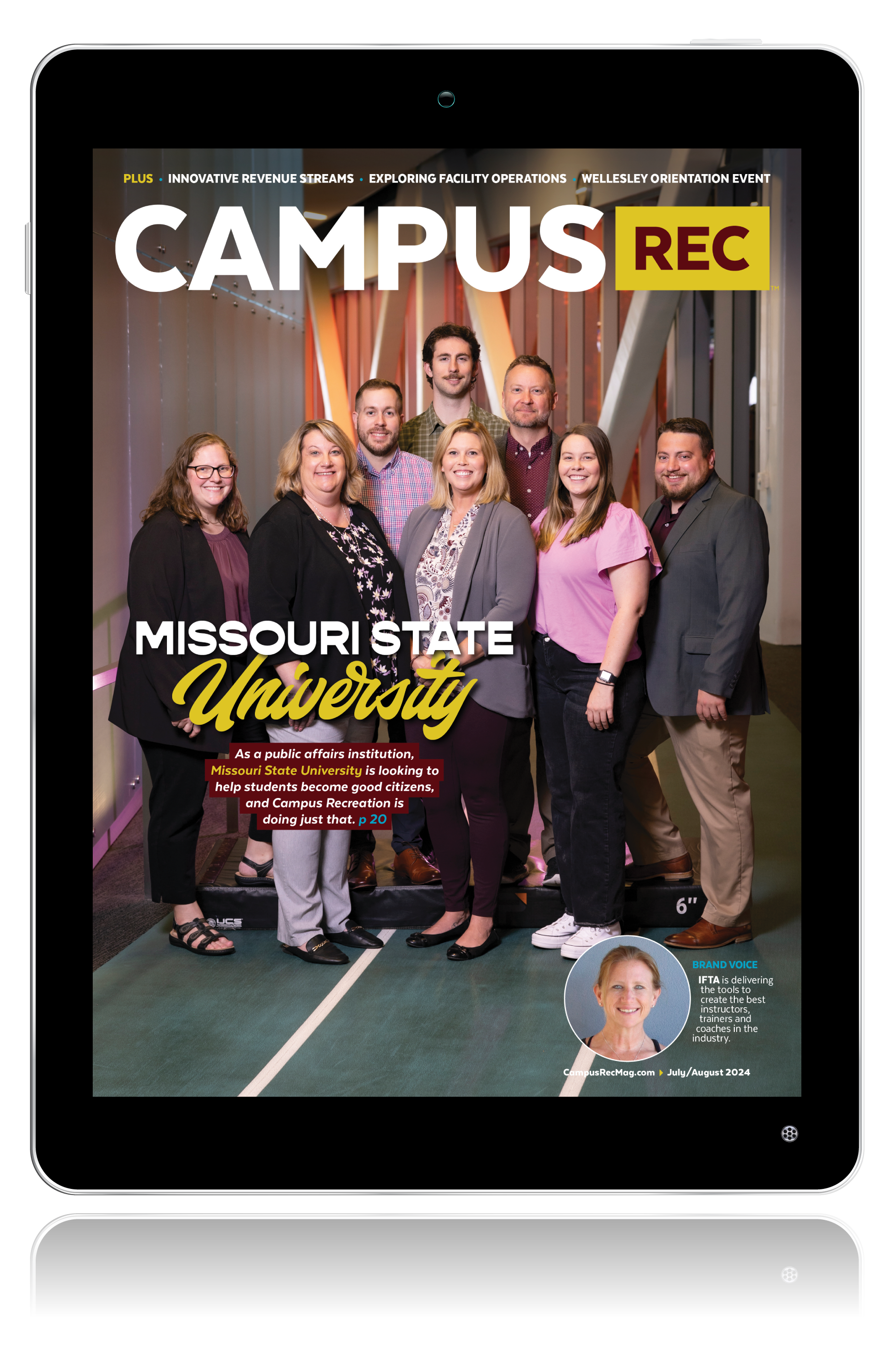The college experience is comprised of a student’s achievement in and out of the classroom.
We, as administrators in campus recreation, continually strive to offer quality opportunities outside of the classroom for the students to accumulate their level of achievement. There are various opportunities to engage in from participation to employment. As administrators, it is important to understand the individual experiences are unique to each participant.
I have found it beneficial to ask students what they have gained and learned from their experiences. In my coordinator of sport clubs role, I developed a strategy of having an evaluation meeting at the end of each semester to ask each club leader what they have learned from the role. I discovered quite a bit from evaluating club leaders about their experience:
Establish a Baseline of Knowledge
The first part of evaluating a student experience is outlining the structure of the program. Establishing a structure starts with providing an overview of the program’s policies and procedures. This can be done by hosting a training meeting at the beginning of the semester to establish clear expectations.
Following the training at the beginning of the semester, it is important to have open lines of communication. There are several ways to do this, including face-to-face meetings, following up after competitions and/or having scheduled monthly email update reports to be sent in from each club.
As the semester winds down, it is important to set up an evaluation meeting with each club to recap the semester and discuss plans for the upcoming semester. The end-of-semester evaluations allow for the club to speak on their experiences and provide their leadership perspective on behalf of that organization. This approach allows for the club to maintain defined leadership roles and a point person for communication. In addition, it allows for students to take on an added experience and role for enhanced student development.
Identify Potential Learning Outcomes
Once a semester is outlined from start to finish for the student, the next level of evaluating the student experience is discovering what the student is gaining from the experience. It is important to note sport clubs are managed by student leaders. With a program strongly dependent upon student leadership, students are able to improve upon various skills to enhance their development. As an administrator, I am able to observe the club leaders mature from the start of the semester to the end. I make observations by establishing a baseline of knowledge at the beginning of the semester and then monitor the development throughout the semester.
This leads to the end-of-the-semester evaluation meeting which serves as an interview to hear from the student about their learning experiences throughout the semester. The outcomes I see most often are development of transferable skills, enhancing interpersonal skills, evolvement of critical thinking skills and maximizing leadership skills. The development of these skills allow the student to maximize their potential, balance priorities and development experiences to assist for future endeavors.
What the Students Said
Over the last couple of semesters, I have made a concerted effort to ask students one thing they have learned from being a club leader. I have been thoroughly impressed by the responses I have received from the students. I often observe development and enhancement of skills in various student leaders. However, it is motivating to hear the students self-reflect and articulate the learning outcomes they have experienced from serving in the role as a club leader.
I have recently concluded the most recent end-of-semester evaluations. Some of the common traits and qualities the students have expressed from being a club leader is time management, becoming a better leader and organizing responsibilities. It is refreshing to hear these themes expressed in their own words. For example, one student said, “I learned there is a lot more work than I realized and there are several levels of the operation to manage.” Another student said, “I learned how to troubleshoot problems and how to keep emotions in check.” Another student said she learned a lot about what commitment really means. These statements are telling and allows me as an administrator to gain additional perspective.
In closing, the lessons learned and expressed from club leaders can be applied to their future professional careers. The feedback shared allows me to enhance the program. Furthermore, the rapport I share with the club leader can lead to professional references and mentorship. Because of this, it’s important to listen and value the student experience and guide them along the way to set them, and the program, up for success.










